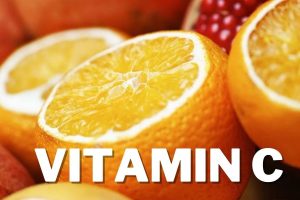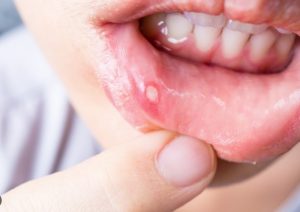
Pumpkin seeds, also known as pepitas, are small, flat, green seeds that are packed with nutrition. They are not only delicious but also offer a variety of health benefits due to their nutrient-rich composition. Here’s a breakdown of pumpkin seed nutrition:
Nutrient Content:
- Protein: Pumpkin seeds are a good source of plant-based protein, containing about 5-7 grams of protein per ounce (28 grams). This can be a valuable addition to a vegetarian or vegan diet.
- Healthy Fats: They are rich in healthy fats, particularly monounsaturated and polyunsaturated fats, which contribute to heart health. These fats make up about 13-15 grams per ounce.
- Fiber: Pumpkin seeds are a good source of dietary fiber, providing around 1.7-1.9 grams per ounce. Fiber is essential for digestive health and can help with satiety.
- Vitamins: They contain various vitamins, including vitamin K, vitamin E, and some of the B vitamins, such as niacin, folate, and pantothenic acid.
- Minerals: Pumpkin seeds are abundant in essential minerals, including magnesium, phosphorus, manganese, and copper. Magnesium, in particular, is present in substantial amounts and is important for various bodily functions, such as muscle and nerve function, bone health, and blood pressure regulation.
- Antioxidants: Pumpkin seeds contain antioxidants, such as carotenoids and vitamin E, which help protect cells from damage caused by free radicals.
Health Benefits:
- Heart Health: The healthy fats in pumpkin seeds can help reduce bad cholesterol levels, potentially lowering the risk of heart disease.
- Magnesium Source: Pumpkin seeds are a rich source of magnesium, which plays a role in muscle and nerve function, blood pressure regulation, and bone health.
- Prostate Health: Some studies suggest that pumpkin seeds may promote prostate health and reduce the risk of prostate problems.
- Antioxidant Properties: The antioxidants in pumpkin seeds help protect cells from oxidative damage, which can contribute to chronic diseases and aging.
- Improved Sleep: Pumpkin seeds contain tryptophan, an amino acid that can help promote better sleep and relaxation.

Culinary Uses:
- Pumpkin seeds can be eaten raw or roasted, and they are commonly used in a variety of dishes, including salads, granola, yogurt, and as a topping for soups and snacks.
- They can be ground into a paste to make pumpkin seed butter, similar to peanut butter.
- Pumpkin seed oil is also used in culinary applications and is known for its unique, nutty flavor.
While pumpkin seeds are highly nutritious, they are also calorie-dense, so it’s important to consume them in moderation as part of a balanced diet. Whether you snack on them or use them in your recipes, pumpkin seeds can be a healthy and delicious addition to your meals.
What Are the Benefits of Eating Pumpkin Seeds?
Eating pumpkin seeds offers a range of health benefits:
- Heart Health: Pumpkin seeds are rich in heart-healthy monounsaturated and polyunsaturated fats. These fats can help lower bad cholesterol levels, reducing the risk of heart disease.
- Magnesium Source: These seeds are an excellent source of magnesium, which supports muscle and nerve function, blood pressure regulation, and bone health.
- Prostate Health: Some studies suggest that the phytosterols in pumpkin seeds may support prostate health and reduce the risk of prostate issues.
- Antioxidant Properties: Pumpkin seeds are packed with antioxidants, including carotenoids and vitamin E, which protect cells from oxidative damage.
- Improved Sleep: The tryptophan content in pumpkin seeds can promote better sleep and relaxation.
Is It OK to Eat Pumpkin Seeds Every Day?
Yes, it’s generally safe to eat pumpkin seeds every day as part of a balanced diet. They provide a nutritious snack option and can be a valuable addition to your daily intake of healthy fats, fiber, protein, and essential minerals. However, like any food, moderation is key. Pumpkin seeds are calorie-dense, so be mindful of your portion size to avoid excessive calorie consumption.
Do Pumpkin Seeds Have Omega-3 Fatty Acids?
Pumpkin seeds do contain omega-3 fatty acids, but in relatively small amounts compared to fatty fish like salmon and flaxseeds. They mainly provide alpha-linolenic acid (ALA), which is a form of omega-3. While ALA is a beneficial omega-3 fatty acid, it is not as potent as the eicosapentaenoic acid (EPA) and docosahexaenoic acid (DHA) found in fish. Therefore, while pumpkin seeds can contribute to your omega-3 intake, it’s advisable to include a variety of omega-3 sources in your diet for optimal benefits.

Are Pumpkin Seeds Better for You Than Nuts?
Both pumpkin seeds and nuts have their own unique nutritional profiles and health benefits. Comparing them depends on individual dietary preferences and nutritional needs. Pumpkin seeds are a rich source of magnesium and may support prostate health. On the other hand, various nuts, such as almonds and walnuts, are known for their heart-healthy monounsaturated fats and other specific nutrients. A well-rounded diet can incorporate both pumpkin seeds and nuts to benefit from their diverse nutrients and flavors.
Is Pumpkin Seeds a Superfood?
While the term “superfood” is often used to describe foods with exceptional nutritional value and health benefits, it’s essential to remember that there is no official classification for superfoods. Pumpkin seeds are undoubtedly nutrient-dense and offer various health advantages, making them a valuable addition to a balanced diet. However, the concept of superfoods is subjective and can vary depending on individual dietary needs and preferences.
Is Pumpkin Seed Good for Men?
Pumpkin seeds can be particularly beneficial for men due to their potential positive impact on prostate health. The phytosterols in pumpkin seeds have been linked to supporting prostate health and reducing the risk of prostate issues. Additionally, the high magnesium content in pumpkin seeds is important for overall well-being, as it plays a role in muscle function, nerve function, and bone health. However, it’s important to remember that a balanced diet, including a variety of nutrients, is essential for both men and women.




